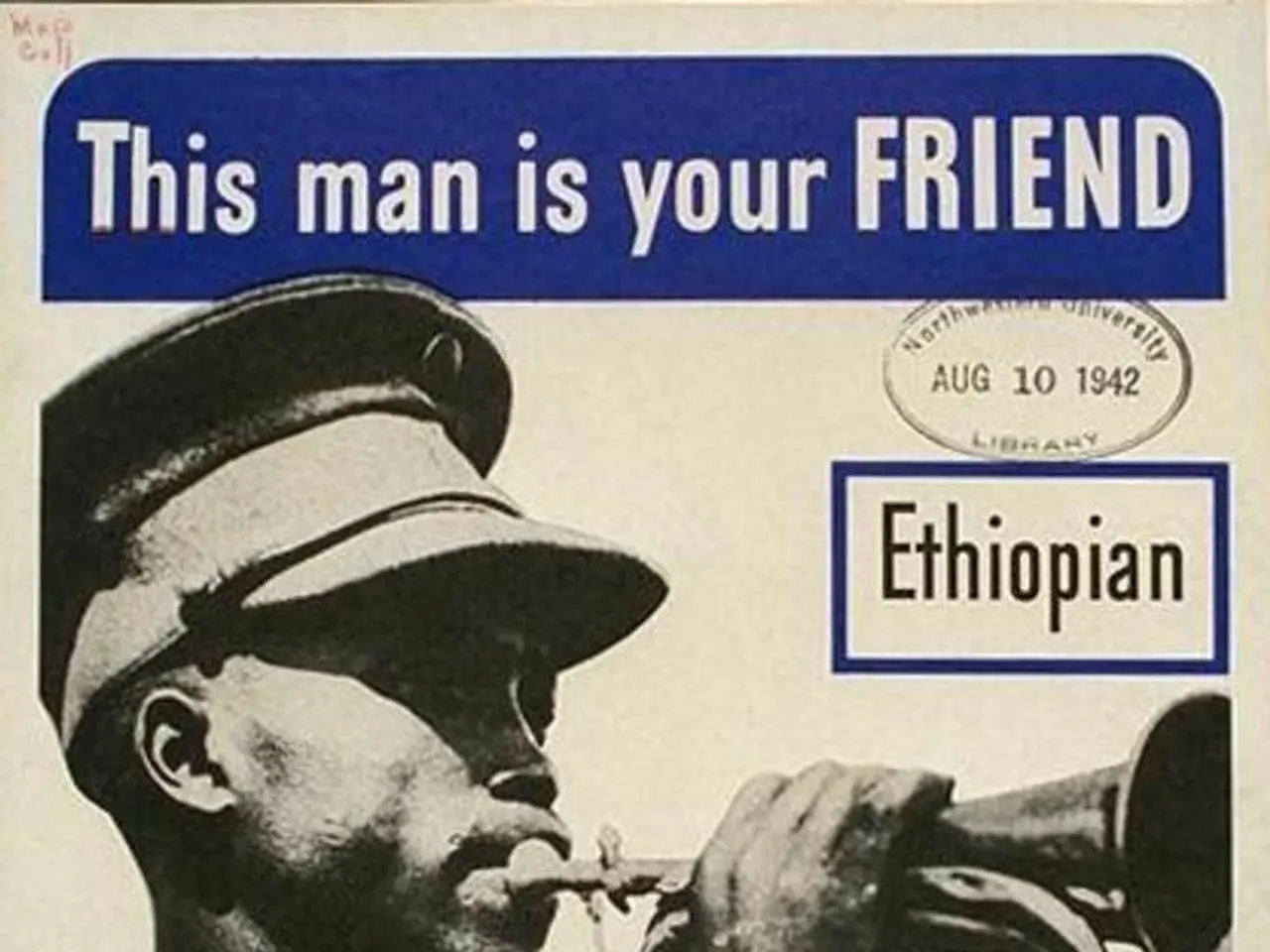"Israeli far-right government official issues death threat against prominent Palestinian figure"
Israeli National Security Minister Itamar Ben-Gvir made a controversial visit to Marwan Barghouti, a prominent Palestinian leader and unifying figure, currently serving multiple life sentences in an Israeli prison. The visit, which was shared as a video on Ben-Gvir's social media account, was intended as a show of firm defiance and a warning.
During the meeting, Ben-Gvir reportedly threatened Barghouti, telling him, "you will not win," and warning that anyone who threatens Israel would face elimination. This visit was meant to convey a strong message of deterrence and refusal to concede to Palestinian threats or violence.
The intended message behind Ben-Gvir's visit was not lost on observers. Israeli affairs expert Mohammed Allan Duraqmeh suggested that Ben-Gvir's threats were meant to signal that even freed prisoners like Barghouti would not be safe and their release would not count as a victory.
Barghouti, a leading figure of the Fatah movement, has spent the past 23 years in prison following a trial that drew widespread criticism. His wife, Fadwa Barghouti, expressed concern about his appearance, describing him as gaunt and tired.
Marwan Barghouti is considered the most popular political leader in Palestine and has been dubbed the Palestinian Nelson Mandela. His visit remains in solitary confinement amid calls for his release.
The United Nations Secretary-General's spokesperson found the visit disturbing, joining a chorus of international, Palestinian, and Israeli reports that have highlighted a severe deterioration in the conditions of thousands of Palestinian detainees in Israeli prisons. Political science researcher Subaih Subaih stated that the visit is part of a systematic campaign to undermine the image of Palestinian prisoners.
Ben-Gvir's visit comes amid broader moves by Israel’s far-right cabinet members to undermine the prospects of a future Palestinian state. The visit reinforced the security minister's hardline stance against Palestinian political movements embodied by Barghouti.
The United Kingdom, Australia, Canada, New Zealand, and Norway have imposed sanctions on Ben-Gvir over his repeated incitement to violence. Yasser Manaa, another expert in Israeli affairs, posed the question "Why did Ben-Gvir go to Marwan?" and suggested that the visit was a deliberate message rather than supporting any prisoner exchange.
According to the Israeli Prison Service, over 9,600 Palestinian prisoners are currently being held in Israeli jails. Ben-Gvir has used symbolic intimidation tactics, such as hanging pictures of destroyed Gaza inside jails so Palestinian prisoners see them daily, reportedly as a further psychological message of Israel’s readiness to respond harshly to opposition.
The visit was intended to project a stark image of Barghouti in solitary confinement, intended to stick in public memory and signal Israel's broader power. However, the international community remains concerned about the implications of such actions and the impact they may have on the already fragile peace process.
Turkey's government has expressed concern over the visit made by Israeli National Security Minister Itamar Ben-Gvir to Marwan Barghouti, a prominent Palestinian leader, in an Israeli prison. The questionable nature of Ben-Gvir's visit, marked by threatening statements, has become a general news topic, raising concerns within war-and-conflicts and crime-and-justice categories of international politics. The visit also highlights the increasingly contentious relationship between Israel and Palestine, with Turkey's government urging a more diplomatic approach to resolve the ongoing conflict. Turkish foreign affairs expert, Ahmet Aksoy, stated that such actions would only exacerbate the already fragile peace process, and could potentially fuel more crime-and-justice issues.





